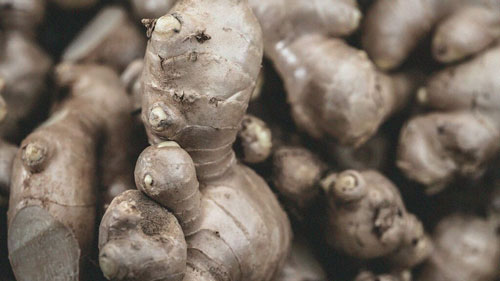A recent study in rodents suggests that ginger might help treat people with lupus and those vulnerable to forming dangerous blood clots.Ginger is a popular food ingredient throughout much of the world, but it might also harbor anti-inflammatory and antioxidant properties.
Researchers at Michigan Medicine in Ann Arbor recently looked at whether ginger might help reduce symptoms of lupus. Specifically, they investigated the main bioactive compound of ginger root: 6-gingerol.
In lupus, as the body’s immune system turns on itself, inflammation can cause permanent damage to tissues. White blood cells called neutrophils play a key role in this runaway inflammatory reaction.
The authors of the study set out to “determine the extent to which ginger-derived compounds might function as a natural suppressor of aberrant neutrophil hyperactivity.”
To investigate, the scientists assessed the effects of 6-gingerol on mice with lupus. They also included mice with antiphospholipid syndrome (APS), which is often associated with lupus. APS is an autoimmune disease that causes blood clots to form in the body’s blood vessels.
The team found that, in both groups of mice, 6-gingerol prevented the release of neutrophil extracellular traps. Lead author Ramadan Ali, Ph.D., explains:
“Neutrophil extracellular traps, or NETs, come from white blood cells called neutrophils. These sticky spiderweb-like structures are formed when autoantibodies interact with receptors on the neutrophil’s surface.”
NETs drive lupus and boost the formation of blood clots. Alongside the reduction of NETs, 6-gingerol also produced a drop in blood clot formation.
It also seemed to inhibit phosphodiesterases, which are neutrophil enzymes. This inhibition led to a reduction in neutrophil activation.
Overall, the findings suggest that the ginger compound’s anti-inflammatory activity directly affects autoantibodies related to illnesses such as lupus and APS.
Importantly, regardless of whether the mice had APS or lupus, there was a reduction in autoantibodies. This result indicates that the ginger compound might break the cycle of inflammation and potentially work as a treatment.
[T]his study is the first to demonstrate a protective role for ginger-derived compounds in the context of lupus and importantly provides a potential mechanism for these effects via phosphodiesterase inhibition and attenuation of neutrophil hyperactivity.










